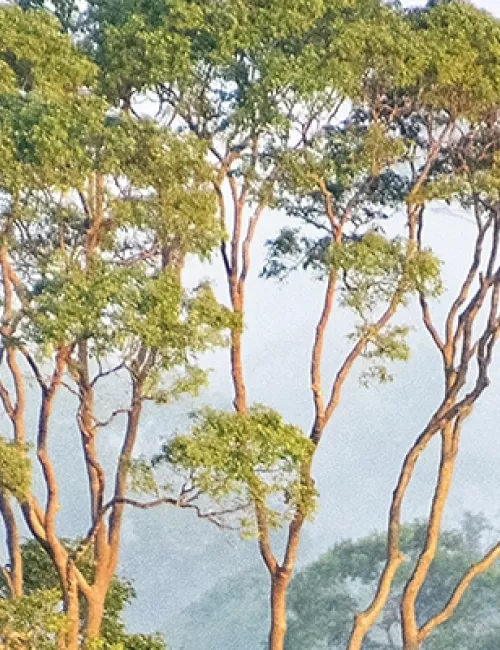ECI lead: Prof Yadvinder Malhi
Three international long-term monitoring networks have been established to monitor the biomass and dynamics of Amazonian, African and SE Asian forests.
RAINFOR
The Amazon Forest Inventory Network is a long-term, international collaboration to understand the dynamics of Amazon ecosystems. Since the turn of the millennium we have jointly developed a framework for systematic monitoring of the forests from the ground-up. This is centred on permanent forest plots that track the behaviour of individual trees and species, and includes extensive collection of soil and plant biogeochemical data, as well as more intensive, high frequency monitoring of carbon cycle processes at key sites.
RAINFOR works with partners across the nations of Amazonia, taking account of the modulating role of environmental variables like soil nutrition, and the need to help develop new generations of Amazon ecologists. The work of RAINFOR is currently supported by funding agencies in Brazil, Colombia, the UK, and the EU.
AfriTRON
The African Tropical Rainforest Observation Network (AfriTRON), is an international network of researchers engaged in on-the-ground long-term monitoring of tropical forests.
The network pools expertise and data to help answer larger-scale and longer-term questions relating to the ecology and biogeochemistry of African tropical forests. In particular AfriTRON aims to address questions of contemporary importance such as the possible impacts of regional and global environmental changes on tropical forests, and the impacts of changes in the forests themselves on the regional and global environment. This is done through partnerships between scientists across the world, students and local villages who host our field-trips.
T-FORCES
Tropical Forests in the Changing Earth System is a long-term interdisciplinary research project aims to construct a Pan-Tropical Observatory of Forest Function, to explore forest response to global change. In Asia, Africa, Australia, and South America, we are developing long-term on-the-ground observations of forest dynamics, integrating them with complementary approaches including high frequency measurement of the climate-sensitivities of different components of the carbon cycle.
The project works with partners across the tropical nations, toward the shared scientific goals of documenting the key patterns, impacts and processes of change so far, and of understanding better the threat to forests from global change.

